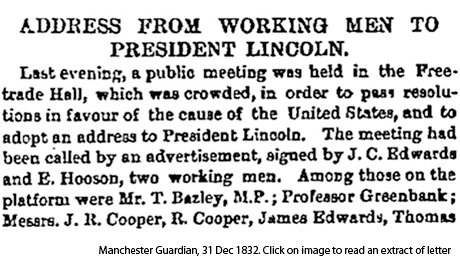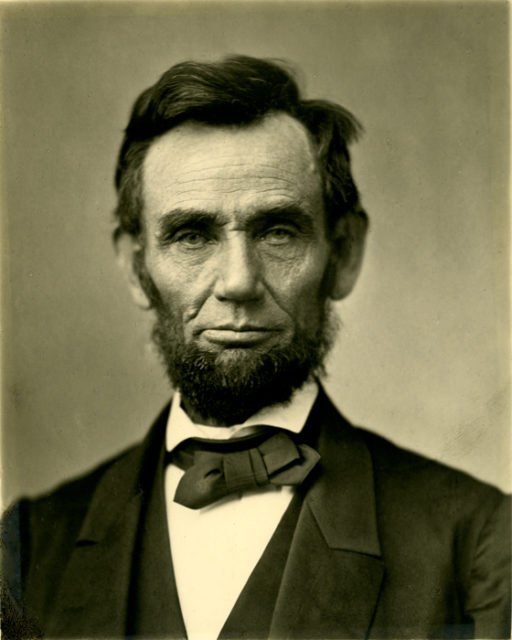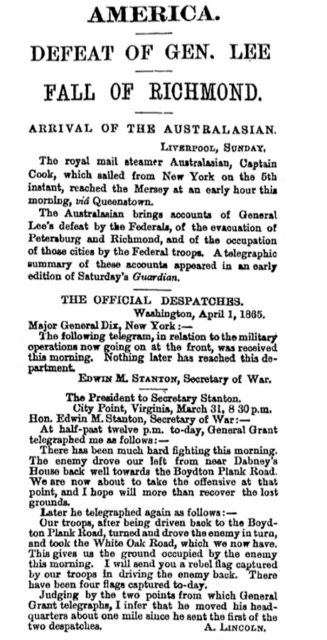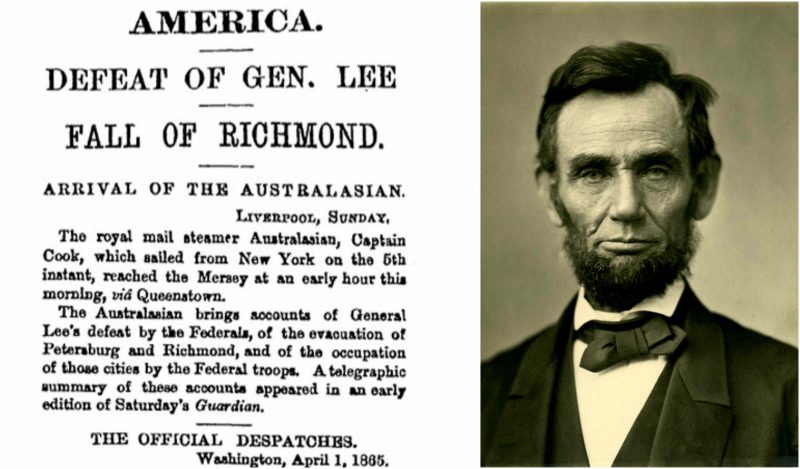There is no denying the fact that during the great cotton era, Manchester city clothed much of the world with its hundreds of looms and thousands of skilled workers working tirelessly days and nights, giving the British economy a huge boost. However in the year 1862, a then-controversial decision taken by Lancashire mill workers changed the dynamics of this booming British industry with long-lasting and historic consequences. These workers refused to use the raw cotton picked by the slaves in the Southern states of America to be processed in their looms. This decision triggered mixed response from various sections of British society: the economy suffered, unemployment rose, violence spread, but the Lancashire mill workers’ righteousness was upheld.

The boycott of cotton in Manchester was directly linked with the American Civil War. The North, led by the President Abraham Lincoln, fought the southern Confederate States of America to abolish slavery and re-establish the unified United States of America. During the height of the Civil War in America, President Lincoln persuaded leaders in the Europe not to trade Southern cotton picked by slaves. He insisted that by doing so the world leaders would help strengthen his enemies, prolong the war, and, consequently, continue to encourage slavery.
After the Lancashire workers stopped dealing with American cotton, many followed suit and the once booming cotton industry slowed considerably. Within a period of only 12 months, Lancashire started feeling the bite of the ban. Lancashire alone imported more than 1.3 billion pounds of raw cotton, all of it grown by the Southern plantation owners and picked by slaves kept in horrendous and inhumane conditions. The embargo meant that countless looms from across Lancashire had to be shut and left to rust while hundreds of workers were left without work.

The lack of consensus over the embargo meant that over time a number of mills and shipping companies started raising concerns about the damage industries had to endure due to the ban. However, the authorities were adamant in their support for President Lincoln and his fight to abolish the institution of slavery and reunify the United States. Liverpool was made wealthy over the cotton imported from the America; it was a then-famous notion that more Confederate flags were on the shores of Liverpool than in Virginia. A number of papers started writing articles about the loss British economy had to endure due to the ban. However, in an 1862 meeting at Manchester Free Trade Hall, workers vowed to keep the embargo in order to support the United States in its mission to eradicate slavery throughout the North and the South.
The result of this decision by the workers was multi-faceted, ranging from hunger and destitution to the historic role and support to abolish slavery. A number of protests up and down the North of England agitating to lift the ban turned violent and soldiers had to intervene to restore order.

The sacrifices of British workers did not go unnoticed, as Lincoln on multiple occasions openly praised the support provided by the British shipping companies and cotton industry to help curb the rebels. After the Civil War, a number of cargo ships reached British shores loaded with provisions and other gifts for the mill workers and their families, as a gesture of gratitude for the support and sacrifices made.
In a letter from Abraham Lincoln in 1863, the efforts of British workers were described as ‘Sublime Christian Heroism’. His words of praise are now engraved on his statue standing tall and proud in Lincoln square.
Read the full archive article here.
